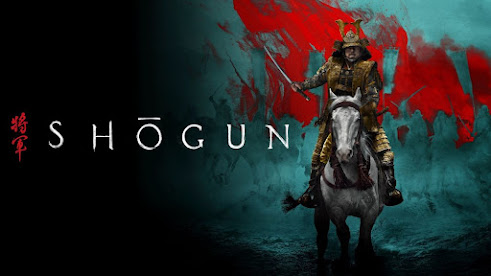Honor, Death, and Meaning: 'Shōgun'
I read the book around ten years ago, and since then, a lot has happened, causing me to forget almost everything. However, it was refreshing to see an adaptation so well done that it brought back memories of what I read so long ago in such a vivid and vibrant manner. 'Shōgun' powerfully captures the differences between cultures as well as the bewilderment of overcoming those dissimilarities. The strong contrast between how the West views life and death compared to the East is embodied by the main character, Anjin-san, played by the British actor Cosmo Jarvis. He confronts the cultural shock of Japan and everything thrust upon him, going head to head with the other characters while learning their incredibly different ways. In many moments of the show, I was like Anjin-san, shocked and often amazed by the cultural uniqueness Japan holds. I realized how great this show is during the first two episodes, particularly when I witnessed the scene of the live boiling of an Anjin crew member. The second episode featured one of the most intense and beautiful portrayals of language translation I have ever seen. The choice to gradually reduce the translator’s presence, allowing the main characters to speak in their native tongues, was a beauty to behold. Many moments throughout this season are worth dissecting. The visual effects were incredible for a TV show, and the cinematography was masterful. FX has received the most Emmy nominations for 'Shōgun' this year, and I expect it to win many of them. The show is a breath of fresh air, remaining respectful and true to the cultures, presenting two different points of view in a sophisticated manner, blending those beliefs and challenging our perceptions of a culture that feels distant, helping us understand where the rituals come from.
Creating something so complex and well-executed is no easy task, and the creators, producers, and actors are top-notch throughout the season. Every episode is approximately an hour-long movie where you immerse yourself in the East, absorbing the language, traditions, and honor with which they carry themselves, including the samurai ways. It is a beautiful show that offers so much to learn with each episode, expanding your horizons. I wonder if the East feels the same way by the end of the first season, because as the samurai ways and Japanese traditions and order become clearer as the show progresses, Anjin becomes more accustomed to their honor and views on death, while all the other characters are transformed by their interactions with him. They underestimated him, just as he initially thought of them as savages. Both parties sang a different song once they got to know each other, and understanding people who are different has never been more crucial for the health of this world. Exploring different cultures and becoming accustomed to something unfamiliar changes your perspective and pushes you out of your comfort zone. In a global world, the boundaries of our nations and minds should not be the end of our journey.
Mariko (Anna Sawai) and the way death is viewed in Japan was an incredible aspect to behold. Death is merely an affirmation of life. We shouldn’t fear death but rather welcome it when fate calls, with respect and honor, creating meaning from it. Honor and meaning, central themes in the show, strikingly challenge Anjin’s beliefs as well as my own. In Eastern Europe, we grew up fearing death, not discussing it, and living in quiet anticipation. It is refreshing to see the bravery of Mariko and almost every Samurai, ready to take their own lives on their own terms, in the name of honor and loyalty. Meaningless death is what everyone feared. Great points were made throughout the show about both views on death. For example, when Mariko was ready to perform seppuku, Anjin respectfully tried to stop her, saying that between life and death, only one is permanent. While he is baffled by the code of honor, he slowly absorbs the multi-layered culture and the meaning and power of their words, laws, and deeds, accepting her death, will, and the meaning in a beautiful ritual performed with another extremely likable character played by Moeka Hoshi—Usami Fuji.
When Mariko was about to kill herself, I was afraid they wouldn’t let her die because of how great the character is. When Ishido (Takehiro Hira) stopped her from committing seppuku, I couldn’t believe they were so afraid to let her stand her ground, robbing her of her honor and her wish for how her life should end, and the meaning she sought, her revenge. That scene was a kind of misdirection, allowing you to let your guard down and then seeing her explode by the end of the episode, shielding her friends and lover with her body, giving her life for theirs. I am still not convinced that she is completely gone.
One aspect that showed respect was the second samurai summoned to finish the job for those who called themselves Christians. In Christianity, suicide is a sin, so the act of seppuku is a crime against the Lord. Even though they had adopted the faith from the Portuguese Jesuits, Japanese rituals and the manners in which they conducted themselves never disappeared from Mariko, Kashigi, or Todo Hiromatsu. Another detail my friend noticed was that Toranaga gave space for a new church right next to the courtesans. Before Gin received the property, she had a meeting with Toranaga, which lasted as long as the candle was lit. There are many more rituals; if someone wants to explain them, I am ready to listen. I am also ready for a second season and for the Emmys, where I believe FX will bring honor to Disney as one of their devisions that is doing an astounding job.
Iliya Badev




Comments
Post a Comment